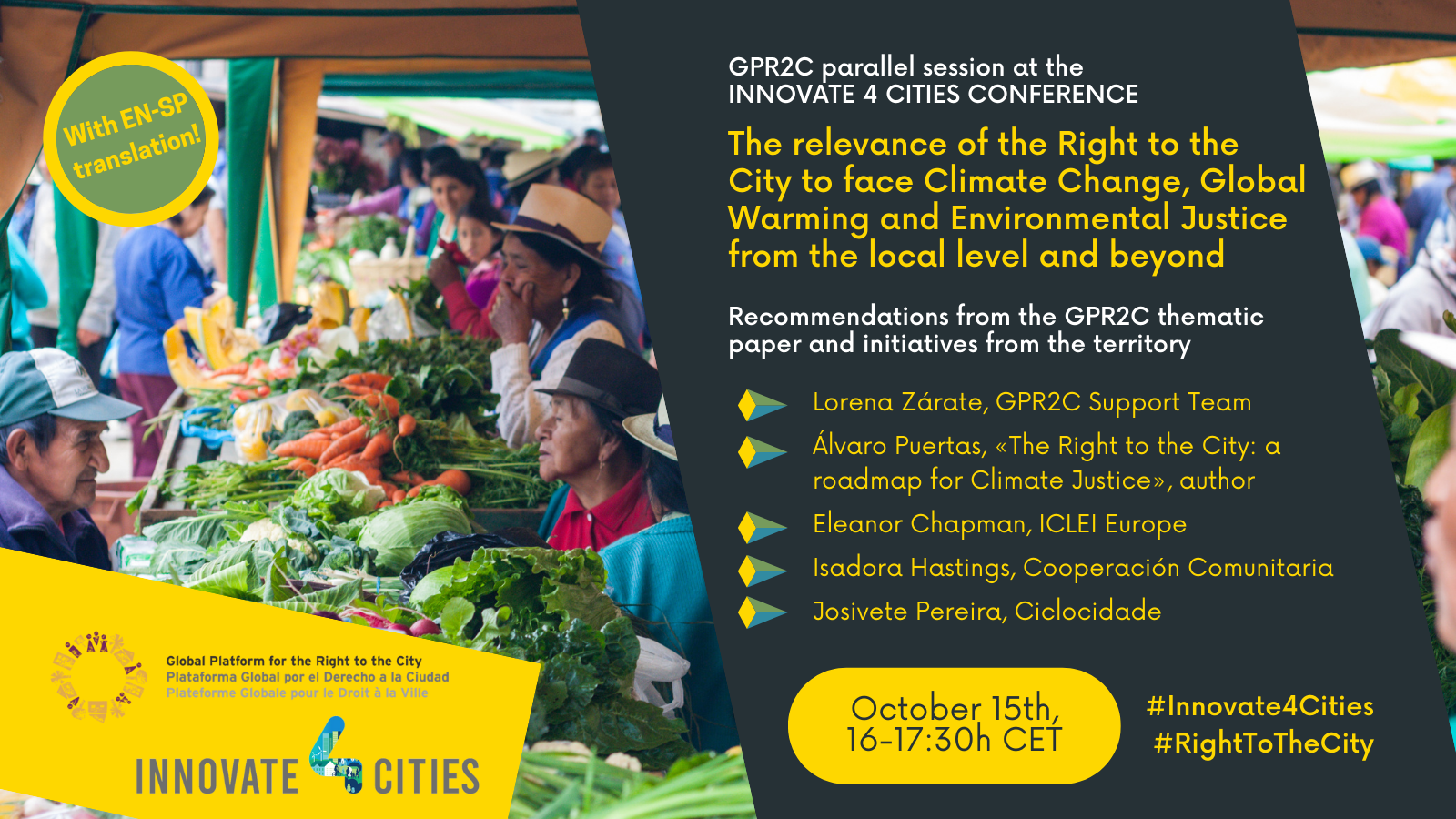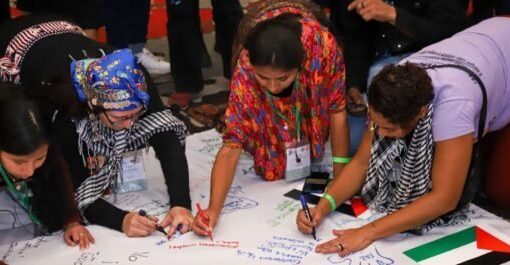
On October 15th, the Global Platform for the Right to the City (GPR2C) is organizing a parallel session at this Innovate4Cities 2021 Conference, under this year’s framework: “Science and Innovation partnerships driving inclusive, resilient, and climate-neutral cities”. Based on the publication “Right to the City: a roadmap for Climate Justice”, released by the GPR2C this year, the session aims at shedding light at the different approaches and tools that the Right to the City offers for local governments to construct a rights-based climate agenda, that is committed to ensuring Climate Justice.
The event will provide an overview of the Right to the City framework, focusing on its potential for guiding a rights-based climate agenda, specifically at the local level. Particular attention will be given to concrete proposals and recommendations for creating enabling environments for local action, the role of local governments and a selection of good practices and initiatives that successfully incorporate Right to the City principles into climate action.
Speakers
- Lorena Zárate, GPR2C Support Team
- Álvaro Puertas, Author “The right to the City: a roadmap for Climate Justice”
- Eleanor Chapman, ICLEI Europe (Local Governments for Sustainability)
- Isadora Hastings, Cooperación Comunitaria
- Josivete Pereira, Ciclocidade
The session will have interpretation in English and Spanish and will take place online on Friday, October 15th, from 16h to 17:30h CET. You can access the event here.
Click here to regíster to the forum.
Background and context
The Right to the City is a key reference framework to guide equitable climate action and to jointly create practical agendas to mitigate climate change. Through its collective and territorial approach to Human Rights, the Right to the City is fully aligned with the notions of Climate and Environmental justice, which allows for developing a climate agenda that protects the most vulnerable and guarantees the restitution of rights lost in the past while preserving those rights for future generations.
Aware of the urgency of environmental problems in their cities and territories and the need for local strategies to support global and national plans, local and regional governments have been driving forward policies on sustainability both in coordination with national governments and independently. Despite challenges regarding availability of resources and limited competencies, the local level shows strong potential not only to contribute to a long-term agenda for climate action, but to ensure that such agenda is committed and aligned to Human Rights.
More about Innovate4Cities
UN-Habitat and the Global Covenant of Mayors for Climate & Energy (GCoM) invite you to be part of Innovate4Cities 2021 this October. Also known as I4C, Innovate4Cities 2021 is a virtual global and regional event that promises to bring together science and innovation, policy and practice united by a common objective: enabling cities to take accelerated and more ambitious climate action.
Across the globe, as societies tackle COVID-19 recovery in earnest, there is a real opportunity to build back better — to build cleaner, more resilient, sustainable societies and a fairer world.
Aligned with other international conferences, events and consultations focused on complementary themes, Innovate4Cities 2021 is strategically timed. It will follow marquee events, including Race to Zero, Race to Resilience, the High-level Political Forum on Sustainable Development (HLPF), and the Convention on Biological Diversity. It will precede arguably the biggest climate change event taking place this year, virtually and on a limited in-person basis in Glasgow, namely the 26th UN Climate Change Conference of the Parties (COP) discussions this November.
I4C’s key theme is the Global Research and Action Agenda. Discussions stemming from this broader theme will address more specific topics, such as post-pandemic recovery, climate justice and green strategies.






